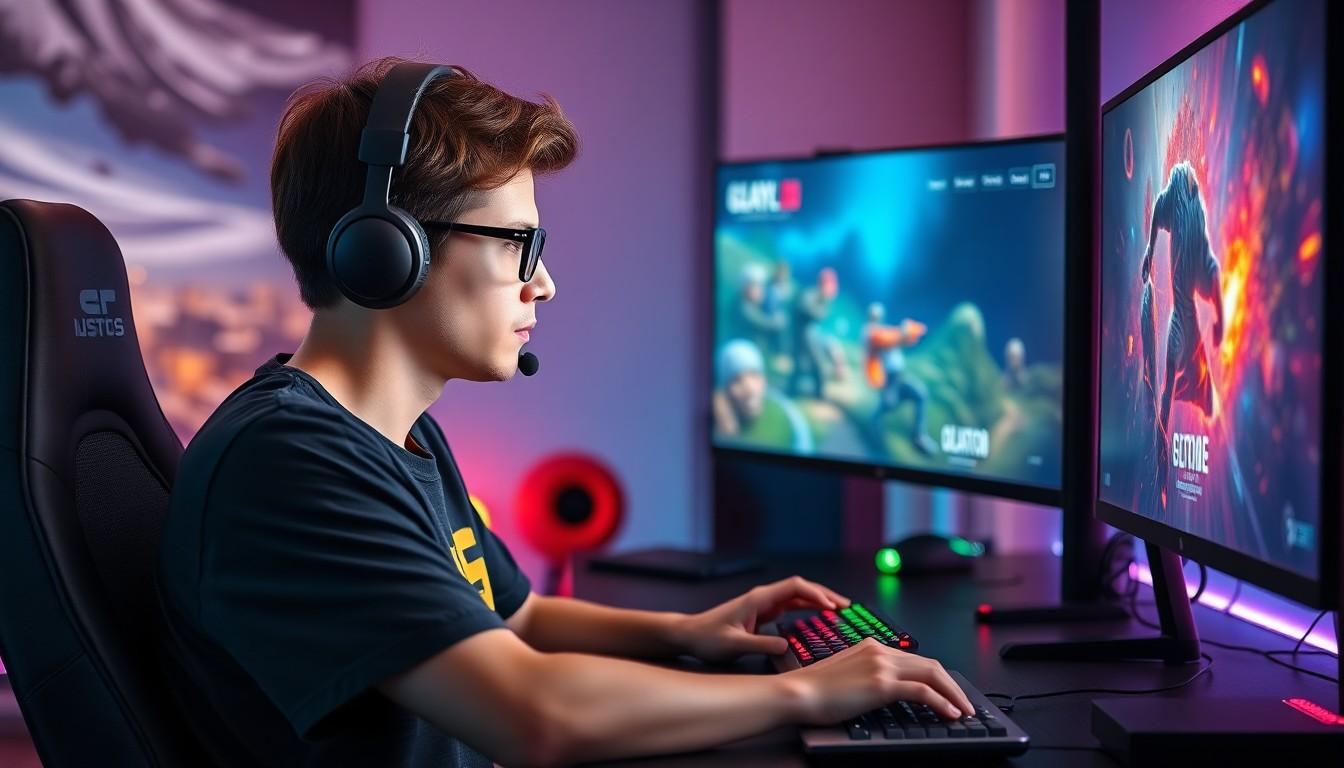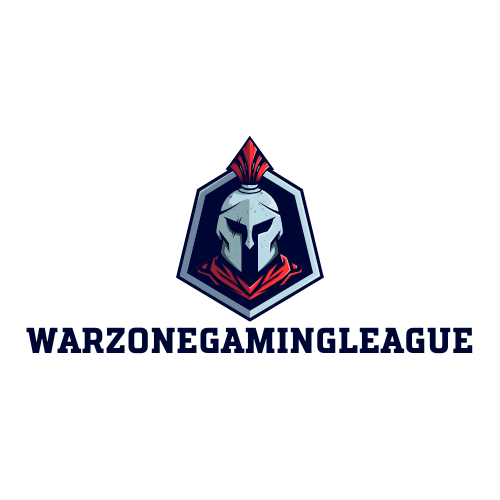The Best Fluffy Pancakes recipe you will fall in love with. Full of tips and tricks to help you make the best pancakes.

Gamer Rankings: Unlocking the Secrets to Climbing the Competitive Ladder
In the fast-paced world of gaming, where every pixel counts and every second matters, gamer rankings have become the ultimate badge of honor. Picture this: your friends are bragging about their epic wins while you’re stuck in the tutorial level. It’s time to level up your status and show the world who’s the real MVP.
Gamer Rankings
Gamer rankings play a critical role in the competitive gaming environment. They offer a metric for measuring a player’s skill and performance against peers. Players often seek high rankings as a means of gaining recognition within the gaming community.
Many ranking systems use various algorithms to evaluate performance. These algorithms may consider factors such as win-loss records, scores, and other accomplishments. Players frequently feel motivated to improve their skills to achieve higher rankings.
Competitions occur across numerous platforms and game genres. Popular games like League of Legends and Fortnite implement ranking systems that categorize players from bronze to challenger. A well-defined ranking structure benefits both new and seasoned players by providing clear goals.
Achievements in gaming rankings influence players’ reputations. Friends may compare their ranks, creating a friendly rivalry that encourages continuous improvement. Recognition derived from rankings can lead to opportunities in tournaments or sponsorships.
Many players utilize online resources and communities for advice on improving their rankings. Strategies often include focused practice, studying gameplay, and participating in training sessions. Engaging with knowledgeable players within online forums enhances learning and skill growth.
Gamer rankings function as a benchmark for excellence in gaming. They not only signify skill but also foster a sense of community among players. The pursuit of higher rankings drives many to refine their gameplay and elevate their standing in an evolving competitive landscape.
Importance of Gamer Rankings
Gamer rankings play a crucial role in the competitive gaming landscape, acting as a benchmark for players’ skills. These rankings often symbolize status and achievement, motivating players to enhance their abilities.
Impact on Competitive Gaming
Gamer rankings directly influence the competitive gaming environment. High rankings establish credibility, allowing players to gain respect within the community. Rankings encourage players to engage in competitions, aiming for recognition and prestige. Additionally, they intensify rivalries among players, fueling motivation to improve. Players frequently analyze their ranking performance to identify strengths and weaknesses. This analytical approach drives them to refine strategies and enhance gameplay. Moreover, consistent improvement leads to participation in tournaments, presenting opportunities for sponsorship. Competitively, rankings shape the way players approach their gaming experience, creating a culture of striving for excellence.
Influence on Game Development
Game developers heavily consider gamer rankings when designing their titles. Structured ranking systems enhance player engagement and offer clear goals within games. Developers often implement algorithms that adapt to a player’s skill level, ensuring balanced matchmaking. These systems make gaming more enjoyable and competitive for players with varying skills. Developers also analyze player ranking data to tweak gameplay mechanics and balance character abilities. Feedback collected from the ranking system informs updates and expansions, enriching the overall gaming experience. As a result, players benefit from improved gameplay while developers create more engaging titles that cater to their audience’s desires.
Types of Gamer Rankings
Gamer rankings can be categorized into various types, each reflecting different aspects of a player’s capabilities and performance. Understanding these types helps players navigate their competitive landscape effectively.
Skill-Based Rankings
Skill-based rankings focus on a player’s inherent skills and abilities within a game. These rankings assess individual competencies, such as reaction time, strategy, and execution. For instance, games like Overwatch use a ranking system that evaluates players based on solo performance in matches. Players earn ranks by winning games, with higher tiers reserved for those showcasing superior skills. Competitive modes in various titles often emphasize skill-based rankings to create a balanced environment, encouraging players to improve specific gaming techniques.
Performance-Based Rankings
Performance-based rankings emphasize measurable outcomes during gameplay. These rankings take into account metrics like win-loss ratios, average scores, and game-specific achievements. For example, in League of Legends, players achieve ranks based on successful matches and contributions to team objectives. Performance-based rankings motivate players to focus on consistent achievements and overall impact rather than just individual skills. Many platforms present detailed statistics, enabling players to analyze their gameplay and identify areas for improvement. Thus, performance-based rankings provide insights that drive competitive engagement and personal growth within the gaming community.
Popular Gamer Ranking Platforms
Numerous platforms cater to gamer rankings, creating diverse environments for competition and growth. Each platform offers unique features that appeal to different player preferences.
Platform Features
Platforms vary widely in features, enhancing player tracking and progress updates. For instance, MasterRank provides detailed analytics on gameplay, allowing players to analyze performance metrics. RankedBoost specializes in integrating multiple games, offering cross-game rankings and comparisons. Community-driven platforms like Twitch also incorporate ranking elements, fostering engagement between streamers and viewers. Moreover, features such as leaderboards and performance insights create a competitive edge, motivating players to improve and climb the ranks.
User Experience
User experience directly impacts player satisfaction on ranking platforms. FACEIT emphasizes an intuitive dashboard, simplifying navigation through rankings and gameplay statistics. Meanwhile, Battlefy combines a sleek interface with seamless tournament management, enhancing user interaction during events. Engaging community features allow players to connect, share strategies, and celebrate achievements. Furthermore, mobile-friendly designs cater to players on-the-go, ensuring accessibility across devices. A smooth user experience fosters loyalty, encouraging players to return for ongoing improvements and community engagement.
Trends in Gamer Rankings
Evolving trends in gamer rankings reflect changes in player behavior and technology advancements. Competitive gaming has embraced the concept of tiered rankings, where players progress through levels based on their performance. High-level players often share strategies and gameplay tips through streaming platforms, fueling interest in climbing the ranks.
Emerging algorithms continue to refine ranking systems, enhancing the accuracy of player assessments. Many games, such as Apex Legends and Call of Duty, apply data analytics to evaluate player statistics. Comprehensive metrics consider various aspects, including time played, skill demonstrated, and match performance, reinforcing the importance of adaptability.
Social elements increasingly influence gamer rankings. In addition to individual performance, team dynamics play a crucial role. Collaborative games like Valorant emphasize teamwork, leading to rankings that account for both personal and group achievements. Players who excel in roles supporting their teams often experience boosts in their rankings.
Global competitions impact trends, as players strive to showcase their skills on international stages. Events like ESL One and The International attract significant attention, motivating gamers to achieve top-tier rankings for potential prize money and sponsorship opportunities. Many seek continuous improvement to maintain relevancy in these competitive environments.
Cross-platform play has also reshaped gamer rankings. Players on different consoles or devices compete against each other, leveling the playing field and expanding the player base. This shift often results in more dynamic ranking experiences, as diverse skill levels interact within the same gaming community.
Mechanics used in ranking systems continue to evolve, encouraging engagement and competition. Developers prioritize balanced matchmaking to ensure fair play, enhancing user experience. Players often rely on resources from platforms like Discord and dedicated forums to share insights on improving their rankings and achieving personal goals.
Gamer rankings play a pivotal role in shaping the competitive gaming landscape. They not only serve as a status symbol but also drive players to continuously improve their skills. As the gaming community evolves the significance of these rankings becomes even more pronounced.
With various platforms offering unique features and insights players have the tools they need to enhance their performance. The integration of advanced algorithms and community-driven elements fosters an environment where both individual and team achievements are recognized.
Ultimately gamer rankings are more than just numbers; they embody the spirit of competition and the pursuit of excellence within the gaming world.
